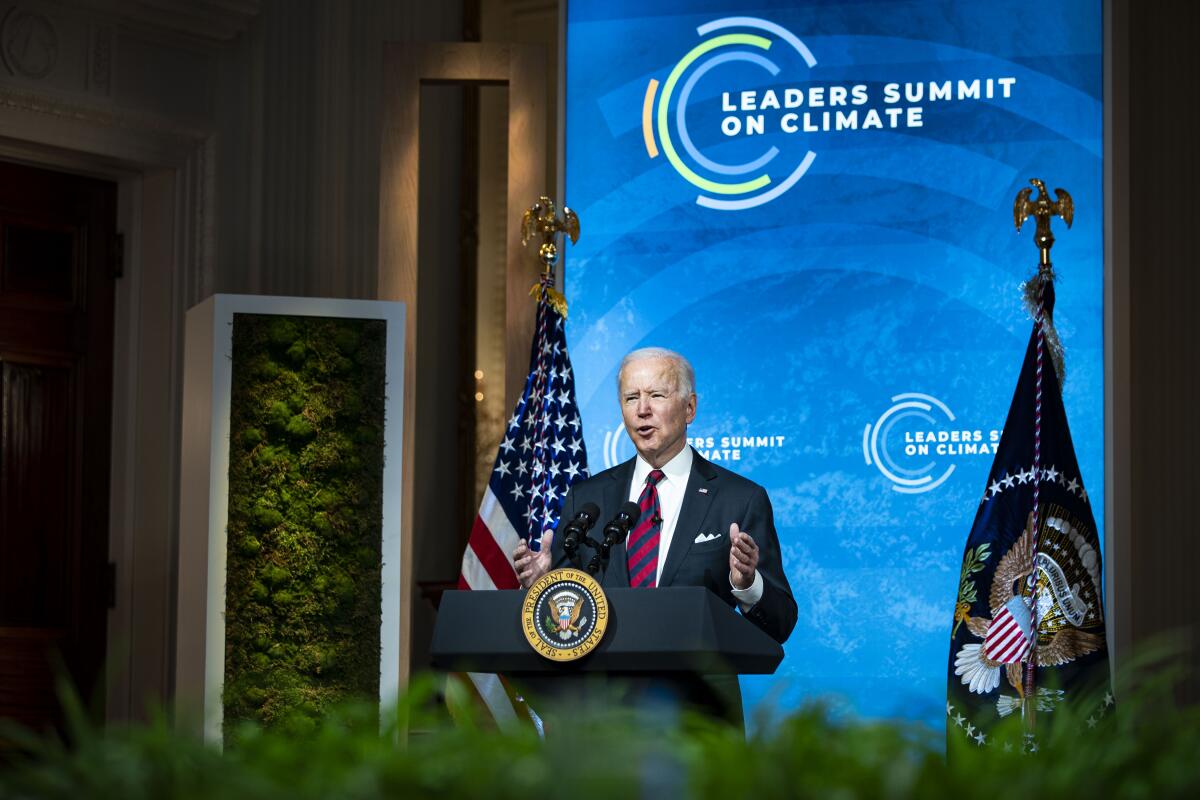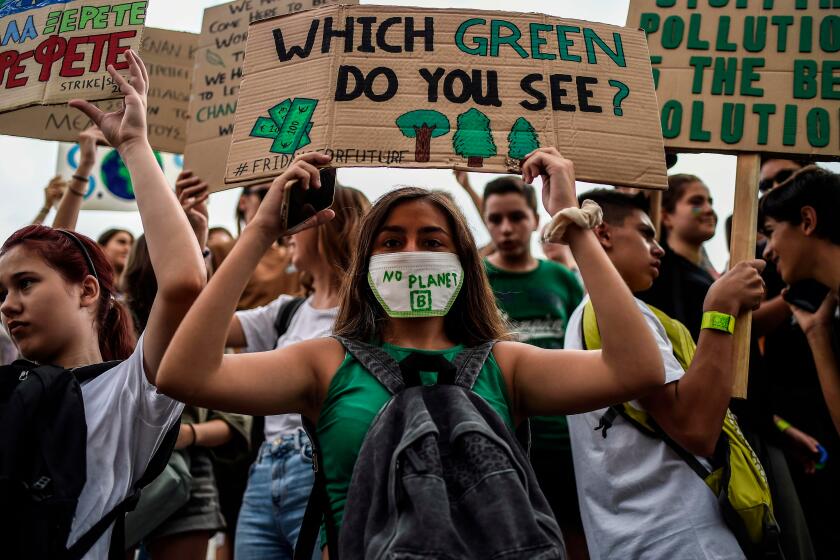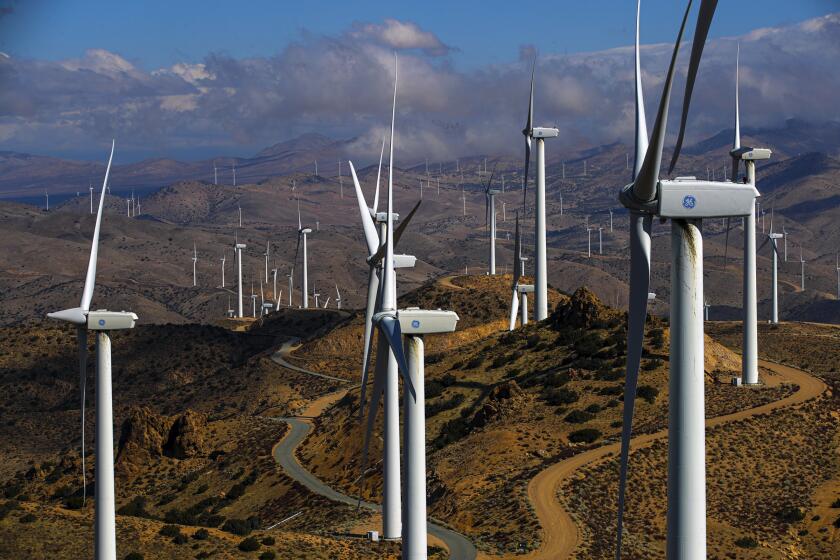‘How our nation intends to build an economy’: Biden closes summit on jobs and clean energy

- Share via
WASHINGTON — President Biden urged Americans and world leaders to speed up the shift toward clean energy Friday, arguing at the close of the global climate summit he convened that fighting climate change is a challenge, but also an economic opportunity.
“When we invest in climate resilience and infrastructure, we create opportunities for everyone. That’s at the heart of our jobs plan that I proposed here in the United States,” Biden said, vowing to put automotive workers, electricians and those in the construction trades to work on a massive transformation of how Americans heat their homes and drive to work. “It’s how our nation intends to build an economy that gives everybody a fair shot.”
The two-day virtual summit brought together the leaders of more than three dozen countries, including the largest emitters of planet-warming gases. For an international gathering conducted remotely, bridging multiple time zones and contending with global rivalries, it went smoothly. The U.S. and China managed to put aside their disagreements long enough to bring Chinese leader Xi Jinping to the table — though he did not make any new commitments — and even Russian President Vladimir Putin agreed to take part.
World leaders promised to reduce carbon dioxide emissions when they joined the Paris climate deal, but not all have kept their word.
On Friday, discussions focused on the steps nations could take to reduce their carbon emissions and highlighted the efforts of smaller countries such as Denmark, Norway and Singapore to shift their energy sectors to renewable sources and away from oil, gas and coal.
Danish Prime Minister Mette Frederiksen detailed her country’s plans to achieve a 70% reduction in greenhouse gas emissions by 2030.
“Today, Denmark has more jobs in green energy than in fossils, and the private sector is on board,” Frederiksen said.
United Arab Emirates Prime Minister Mohammed bin Rashid al Maktoum announced a new collaboration between his nation, the U.S. and Britain to speed the pace of agricultural innovation and aid to farmers already suffering from the effects of climate change.
And Israeli Prime Minister Benjamin Netanyahu reiterated his pledge to stop burning coal by 2025, “barring unforeseen circumstances.”
“This was exciting. This was energizing,” said John F. Kerry, Biden’s climate envoy, even as he acknowledged that most countries, including the U.S., are still not doing enough to keep global warming below the temperature threshold that would prevent the most catastrophic effects of climate change.
“As a community of nations writ large, we are not getting the job done,” Kerry said, later adding, “It’s not a lack of capacity, it’s an apparent lack of willpower.”
Biden’s plan to cut U.S. greenhouse gas emissions in half is slightly more aggressive than California’s, and is among the world’s most ambitious.
The summit served as a platform for Biden to announce that he was doubling America’s initial commitment under the Paris climate agreement by pledging to cut the country’s emissions by as much as 52% below 2005 levels by 2030. He also promised that his administration would double its contribution to help developing countries combat and adapt to climate change, pledging to spend roughly $5.7 billion by 2024.
Other countries also boosted their commitments. In the days before to the summit, leaders of the European Union and Britain strengthened their climate targets. Japan and Canada announced deeper cuts to carbon emissions by 2030 on the first day of the international gathering, and South Korea promised to put a stop to public financing of coal-fired power plants.
Just getting China to join the virtual event was in some ways a victory. It was unclear until shortly before the summit whether Xi would participate. But China and India — the Nos. 1 and 3 producers of carbon emissions — offered nothing new. Neither country announced stronger plans to reduce emissions in the near term, to end their reliance on coal-generated electricity or, in China’s case, to stop bankrolling coal-fired plants abroad.
Many other world leaders offered vague assurances that they would prioritize fighting climate change, eventually. Poorer countries emphasized that wealthier nations bore the brunt of the responsibility for global warming and should shoulder most of the costs of undoing the damage.
More to Read
Get the L.A. Times Politics newsletter
Deeply reported insights into legislation, politics and policy from Sacramento, Washington and beyond. In your inbox three times per week.
You may occasionally receive promotional content from the Los Angeles Times.













